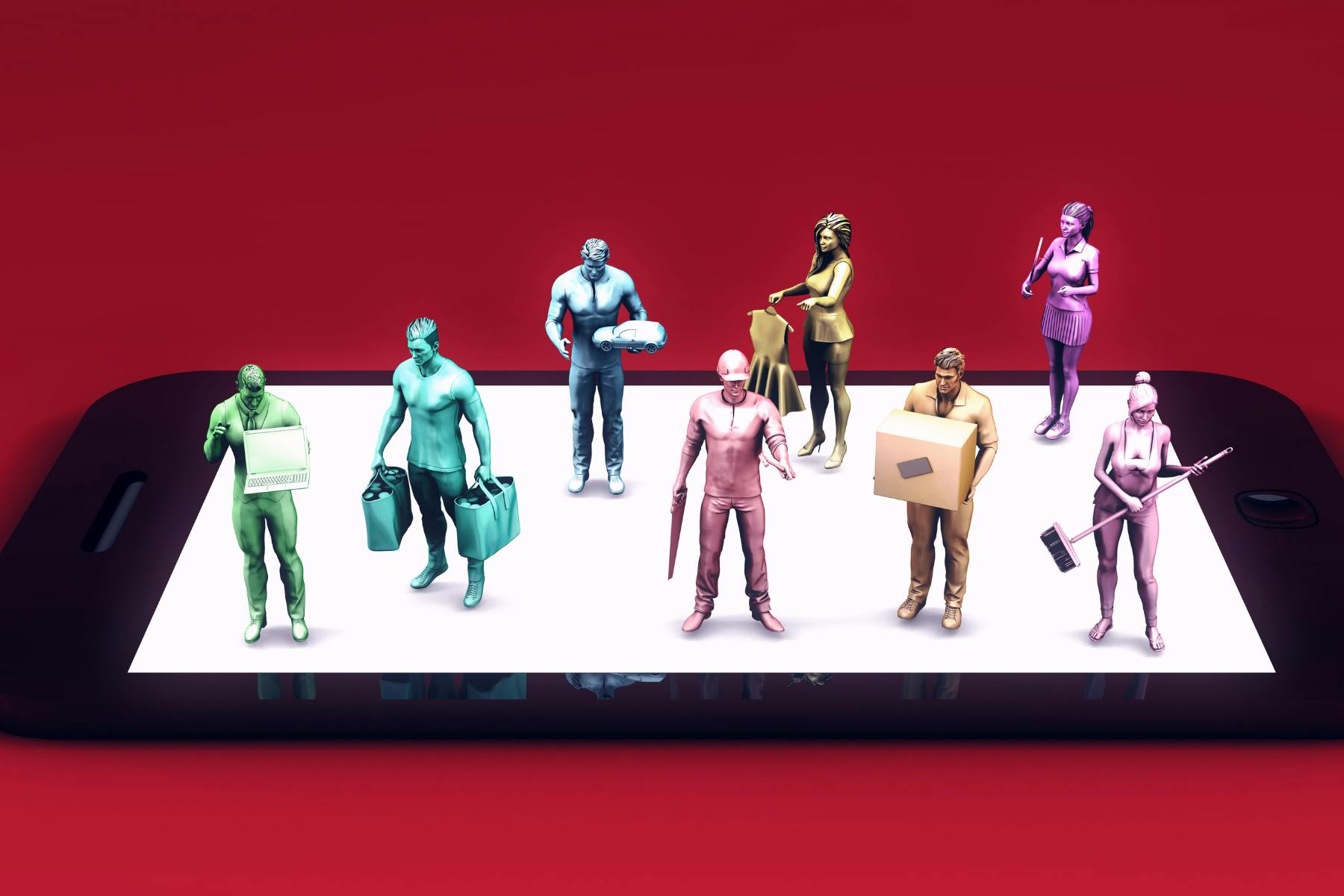My addiction with Uber began a few years ago. I had broken my arm and I couldn’t drive. So, I downloaded the app, opening up a new world of cheap and efficient service at the push of a button. In fact, it’s hard to even remember a time when I couldn’t order a ride, dinner or groceries on my phone.
The independent contractors that work for these apps – about 8% of Canadian workers – are known as the gig economy. Instacart, Uber and Skip the Dishes come to mind, but it’s a category that also includes health care workers, commission only salespeople and other contract workers or freelancers.
I always knew in the back of my mind that the gig economy wasn’t always good for workers or restaurants, but a recent encounter forced me to rethink my use of these apps.
Here’s the story. I had the stomach flu and I had been admitted to the hospital to get hydrated. When I was discharged it was the wee hours of the morning and I decided a rideshare app would be the best option. I summoned a ride before I had a chance to look outside and see that it was snowing heavily. It was a longer than usual wait, but after 30 minutes I hopped in and took a 45-minute drive home. The ride cost me $25, excluding tip (which was larger than normal because I thought $25 was ludicrously low for what I had put this driver through).
Now if that was the driver’s take home pay, he would barely be making minimum wage let alone a living wage. Then factor in record high gas prices and Uber taking their cut, it was even worse.
After this personal encounter with the gig economy, I was pleased to see that the Ontario government was introducing new legislation to “establish a minimum wage and other foundational rights for digital platform workers who offer rides or deliver food and other items for companies such as Uber, Door Dash and Instacart.” So pleased in fact, that I decided to write a blog that Alberta should follow suit.
But as I started to research more, it seemed like this new legislation was not actually a good thing.
My research took me to a case before the Ontario Ministry of Labour. They had recently ruled that an Uber Eats bicycle courier should be considered an employee rather than an independent contractor and that his working hours should include time spent delivering orders and waiting for work. This would mean that Ontario’s new proposed legislation would deny gig workers rights that the Ministry of Labour has ruled they’re entitled to.
The Uber Eats bicycle courier behind this case just happened to be a law student and permanent resident, so challenging the delivery app’s treatment was possible and he had the help of Gig Workers United, a community union which represents couriers from every major gig economy company. However, many people, especially recent immigrants, may not feel empowered to stand up for their rights in the same way.
In a recent op-ed, the director of the Centre for Future Work in Vancouver, Jim Stanford says around the world “gig workers are winning reforms that either confirm they are employees, or else guarantee employee-like protections anyway (like a minimum wage).” Here in Canada, Ontario’s approach on the surface may look like an improvement, but Stanford says “[The Ontario's Workforce Recovery Advisory Committee’s] approach just muddies the waters. It would give platforms more opportunities to evade normal obligations and encourage conventional businesses to convert their own jobs into gigs.” He suggests that if we really want to improve conditions for gig workers, policy makers should look to Europe and review the European Commission’s draft directive on platform work.
Many gig worker platforms have gotten away with not classifying their workers as “employees” for a long time and not adequately compensating them for waiting time, or with other benefits like CPP and EI. But will worker protections make this type of work untenable, or will consumers or local restaurants, that are charged as much as 30% to use platforms like Skip the Dishes, be expected to pay more? That remains to be seen, but recent evidence suggests consumers will bear the brunt or platforms may leave altogether as was the case with Foodora when their employees unionized.
I don’t want to see the platforms suddenly leaving Canada, taking flexible work for those that need it with them. But I also don’t want to see employers shift to using gig workers to cut costs instead of providing stable, full-time jobs. Worker safeguards are necessary and important. It’s time for governments to step in, but not with measures that create a second class of workers like it will in Ontario.
Resources
- Vibrant Community Calgary’s 2020 Poverty Snapshot discusses precarious work and recommendations for advancing gig workers’ rights.
- Gig Workers United’s Gig Workers’ Bill of Rights
- The International Labour Organization published The role of digital labour platforms in transforming the world of work
- Measuring the Gig Economy in Canada Using Administrative Data
- The so-called 'gig economy' is on the rise — here's what that means for Alberta workers
Written with research conducted by Daniel Jacobs.





